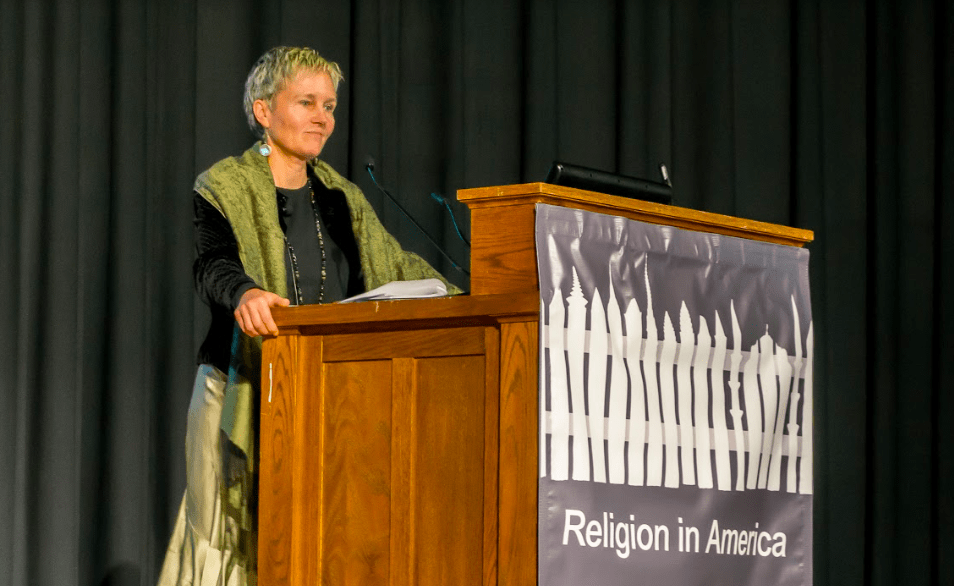Dr. Christel Manning spoke on Tuesday night about spirituality, atheism and religion outside traditional institutions. Photo by Autumn Walter.
On Tuesday night, Dr. Christel Manning spoke in the eighth and second to last honors colloquium on spirituality, atheism and religion outside institutions.
Manning is a professor of religious studies at Sacred Heart University and has spent the last decade studying people who have left an organized religion, the rising number of “nones” in American society and what people are turning to instead of religion. Her book, “Losing our Religion,” received the 2016 Distinguished Book Award from the Society for the Scientific Study of Religion and in 2015, was rated to be in the top 10 religious titles.
Manning’s presentation displayed explanations of why people are leaving organized religion at such rapid rates, how “the nones” are becoming America’s fastest-growing religion and where and what parents are passing down to their children instead.
Through survey research, Manning stated that when presented with the question of “what is your religion, religious preference and religious affiliation,” those who chose atheist, agnostic, or nothing in particular, are the “nones.” Since 1950, this number of “nones” has increased dramatically from 2 percent of Americans to over 16 percent. With this increase, Manning and her colleagues doing religious studies asked themselves why people are leaving religion.
Through studies, a number of explanations as to why people are leaving religion have been uncovered, including youthful rebellion, demographic changes, choosing to not adopt one sole religion, or others who have rejected all aspects of religion.
Manning described the reason of “youthful rebellion” as a normal part of the life cycle that comes with growing up and forming one’s individual ideas. “The idea that young people will leave organized religion in order to forge their own distinct spiritual identity, this is a normal part of the life cycle for young people to question the traditions and values of their parents,” Manning said.
While Millenials are leaving religion at a more rapid rate, this concept of “youthful rebellion” has been going on within every generation.
“Millenials of course are not the first generation to leave the religion that they were raised with, the baby boomers did this before them,” Manning said. “The difference is that young people today are leaving in significantly larger numbers so we need to look for other explanations as well.”
Demographic changes, including later ages of marriage and family formation and an increase in years of education also lead to lower levels of religiosity. Media and politics also play a large role in a decrease in religious affiliation. This can be seen through religious scandals and political polarizations which Manning stated makes people say “that’s not who I am.”
While the religious “nones” do not fall under a specific religion, Manning stated that they fall into four categories of beliefs including unaffiliated believers, spiritual pluralists and the indifferent, and philosophical secularists.
Manning delved into each of these groups stating what each believed understanding each group. Manning stated those under spiritual pluralists often describe themselves as SBNR, spiritual but not religious.
“These are individuals who identify as having no religion because they don’t want to choose and they don’t want to take any single tradition,” Manning said. “They say things like all religions contain wisdom and we need to combine what we like from a selection of them.”
On a different end, Manning explained philosophical secularists as people who have rejected all religion and religious world views. They’re not making a commitment, they’re exploring,” Manning said.
To conclude her presentation, Manning addressed the question of whether or not the “nones” will return to an organized religion. Manning stated that while there is a probability that some will “come back,” there is also a high chance that many others will not. However, due to the fact that every generation is different from the last, the numbers are unpredictable to determine.

